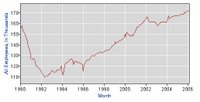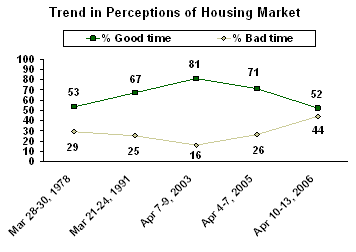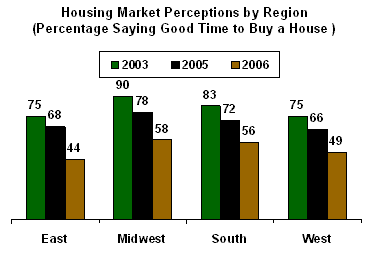When Buffett Speaks... Listen.
Buffett: Real estate slowdown ahead
The Oracle of Omaha expects the housing market to see "significant downward adjustments," and warns on mortgage financing.
On the real estate bubble
Buffett: "What we see in our residential brokerage business [HomeServices of America, the nation's second-largest realtor] is a slowdown everyplace, most dramatically in the formerly hottest markets. [Buffett singled out Dade and Broward counties in Florida as an area that has experienced a rise in unsold inventory and a stagnation in price.] The day traders of the Internet moved into trading condos, and that kind a speculation can produce a market that can move in a big way. You can get real discontinuities. We've had a real bubble to some degree. I would be surprised if there aren't some significant downward adjustments, especially in the higher end of the housing market."
On mortgage financing
Munger: "There is a lot of ridiculous credit being extended in the U.S. housing sector."
Buffett: "Dumb lending always has its consequences. It's like a disease that doesn't manifest itself for a few weeks, like an epidemic that doesn't show up until it's too late to stop it Any developer will build anything he can borrow against. If you look at the 10Ks that are getting filed [by banks] and compare them just against last year's 10Ks, and look at their balances of 'interest accrued but not paid,' you'll see some very interesting statistics [implying that many homeowners are no longer able to service their current debt]."




